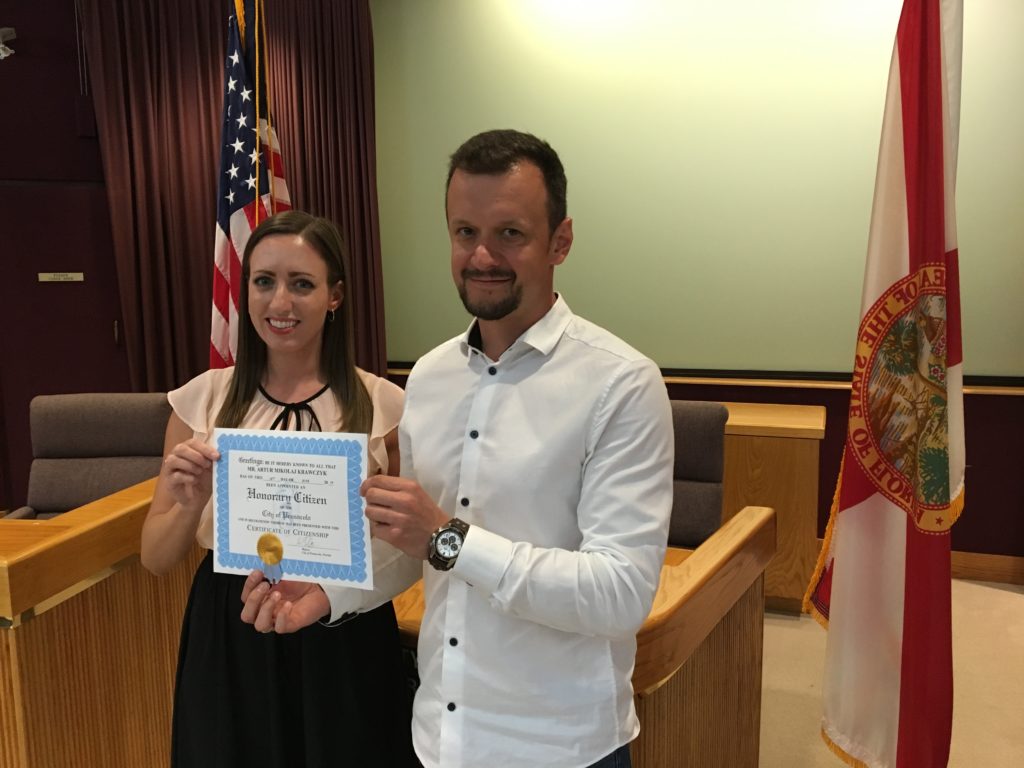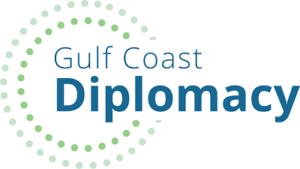This spring, I participated in a panel discussion on education in the time of Covid-19 with a group from Poland (click for YouTube recording). Led by International Visitor Leadership Program (IVLP) alumnus Artur Krawczyk and facilitated by Grzegorz Nawrocki of the British Alumni Society, panelists included educators, administrators, and students from Poland and the United States. The eventual goal is to create a report on how the pandemic has affected education and to discuss what the future may hold.
The Polish team invited our office & Rachel Hendrix of the University of West Florida to participate in the discussion based on our previous work with an IVLP coordinated nationally by World Learning. That project took place over five days in June 2019 and was titled “21st Century Changemakers: Be Best: Strategies for Combating Cyberbullying.”
The panel began with brief presentations from a representative of each country highlighting some of the effects of online education. As an onlooker, I was struck by the familiarity of the statistics in Poland. Though I did not know any of them previously, none surprised me due to my own experience with virtual school. Citing high rates of depression amongst students and eight or twelve-hour days in front of the computer, the statistics could have easily been based on my peer group rather than one halfway around the world.
We typically had at least one panelist from each country speak on any given question throughout the discussion. Yet again, hearing the similarities between the two countries was stunning. It seems that the same challenges regarding online learning have been faced all across the globe. One panelist, a teacher from Poland, shared how he has had to shorten his classes to help ensure that he and his students do not experience the dreaded Zoom fatigue. Similarly, Gulf Coast Diplomacy’s own Youth Diplomats program made adjustments to combat long hours of staring at Zoom. Meanwhile, my college in New York has created requirements regarding how long teachers can keep students on a call before mandating a break. As I listened, I found myself nodding along with things said by people I had only met in the hour before, feeling like I knew exactly what they were talking about.
For better or worse, this panel made it abundantly clear that people worldwide are dealing with the same challenges resulting from the pandemic. Though this illustrates how pervasive these problems are, it also highlights that though this time can be isolating, no one is facing these issues alone. As one panelist concluded, the resources for help are out there because somewhere, someone has the same question.
I encourage you to take the time to watch the panel. I certainly found hearing from the other panelists to be an informative experience. Though this is such an isolating time, learning more about how others are dealing with the same problems I face daily allowed for a moment of connection, knowing I am not in this alone.

Artur Krawczyk received honorary citizenship with the City of Pensacola in June 2019
